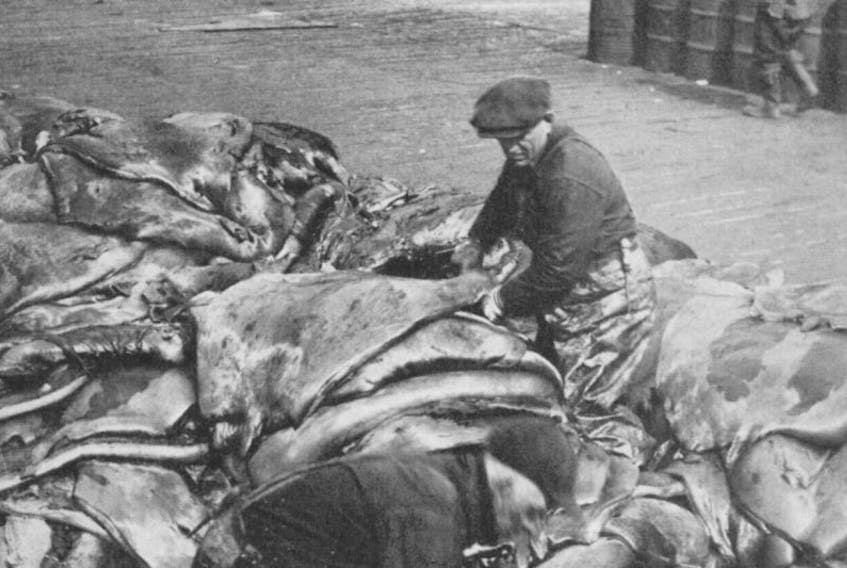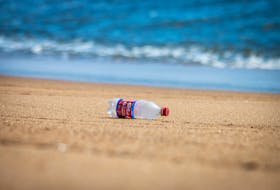By Danita Catherine Burke
In 2014, Greenpeace Canada apologized to Canadian Inuit for its colonial approach toward sealing practices and culture which damaged Inuit societies.
However, Greenpeace’s infliction and implicit condoning of violence against sealers in Newfoundland and Labrador remains unaddressed.
Why apologize? Greenpeace remains committed to its anti-commercial sealing stance. But the organization doesn’t need to support sealing to see why an apology is necessary to Newfoundland and Labrador sealers.
Greenpeace’s code of conduct articulated that being cutting-edge means encouraging people to learn from their mistakes.
Greenpeace did not live up to its own moral code during its anti-sealing campaigning. The code is based on principles such as personal responsibility and nonviolence, promoting solutions, trust and respect, and valuing people.
The anti-sealing movement started in the 1960s and peaked in the early 1980s. Commercial sealing was the main target, focusing on Newfoundland and Labrador.
Greenpeace was a leading organization in the movement, joining in the early 1970s.
In 1976, Greenpeace acknowledged the economic and cultural importance of sealing to Inuit and Newfoundland and Labrador.
By 1977, however, the organization abandoned its 1976 acknowledgement and started referring to local sealing as murders and slaughters.
The Dominion of Newfoundland (and Labrador) joined Canada in 1949. When protests started, the province’s sealers were new Canadians practising their own centuries-old cultures and traditions.
Greenpeace, however, framed sealing as an antiquated Canadian practice that most Canadians were against.
Sealing was never a major Canadian practice. Sealing is practiced by, and important to, various isolated and rural coastal communities, according to the Report for the Royal Commission on Seals and the Sealing Industry in Canada.
But Greenpeace did more than mischaracterize sealing; it attacked people it knew were ill-equipped to defend themselves.
A 1977 Greenpeace report states that the organization knew the average sealer had “3.5 dependents, an average education of grade 9, (and was) living in isolated communities with limited occupational mobility.”
In 1977, Greenpeace targeted sealers during the hunt. Paul Watson led their work.
Greenpeace members stole equipment and pelts, damaging, destroying and throwing them in the water.
Sealers received letters saying things like, “You people of Newfoundland are a bunch of murderers… I guess it’s true, Newfoundland is backward, ignorant and prehistoric.”
During one incident, four Greenpeace members surrounded a sealer on an ice pan. The members trapped the sealer, refusing to let him leave the ice pan while trying to provoke him to respond, which he didn’t.
Watson was expelled from Greenpeace for his conduct in 1977. Greenpeace didn’t apologize to the Newfoundlanders and Labradoreans for Watson’s attacks in their name.
Sealers had no respite off the ice. Their communities were inundated with protesters and media. They were harassed in their homes with abusive telephone calls and mail.
Sealers received letters saying things like, “You people of Newfoundland are a bunch of murderers… I guess it’s true, Newfoundland is backward, ignorant and prehistoric.”
“You dirty, rotten son of a bitch! If I could get to you, I would beat you senseless; then I would skin your hide… You’re lucky I don’t go up there now and do it. I hope you die. Don’t be surprised if you hear me or see me… I’d pay anything to have you for five minutes.”
Greenpeace didn’t condemn the verbal and psychological attacks imposed by anti-sealing supporters.
A dying generation
The people most deserving of an apology are aging. The last of the pre-1949 Dominion of Newfoundland (and Labrador) generation will soon be gone.
The number of sealers is dwindling. Their role as essential knowledge keepers and storytellers is endangered. Generations of irreplaceable historical and cultural knowledge are at risk of extinction.
Actively pursuing the destruction of a vulnerable sub-culture is incongruent with Greenpeace’s ideals, but that’s what it did.
Now is the time for Greenpeace to apologize. An apology can’t undo its past or the harm it inflicted. But it’s a necessary step to help start the process of rectifying some of the long-term damage caused by the anti-sealing violence.
Danita Catherine Burke is a fellow of the J.R. Smallwood Foundation based at the Center for War Studies, University of Southern Denmark. This article is based on her forthcoming research in The Northern Review: “The Case for a Greenpeace Apology to Newfoundland and Labrador.” Twitter @DanitaBurke1









